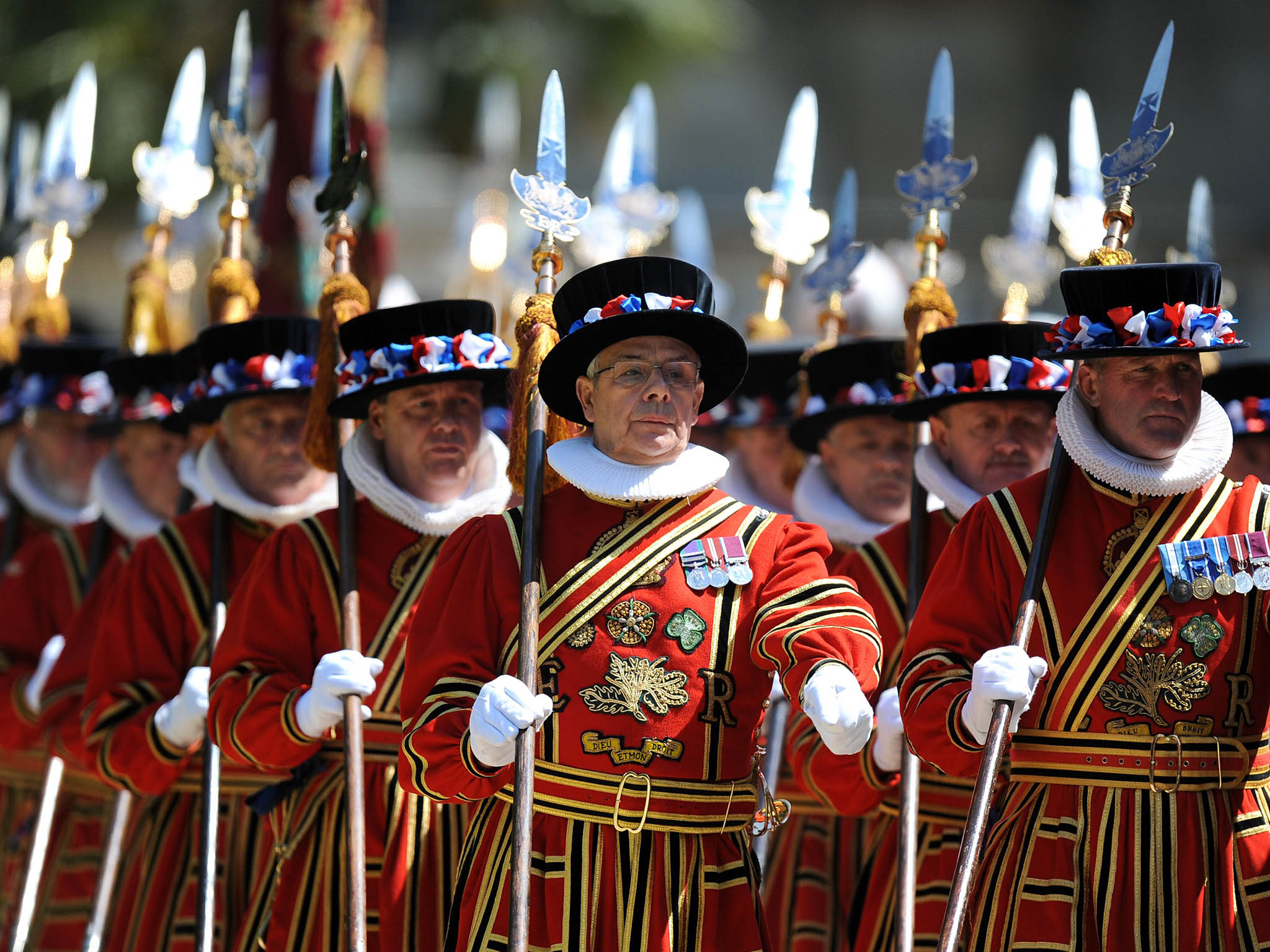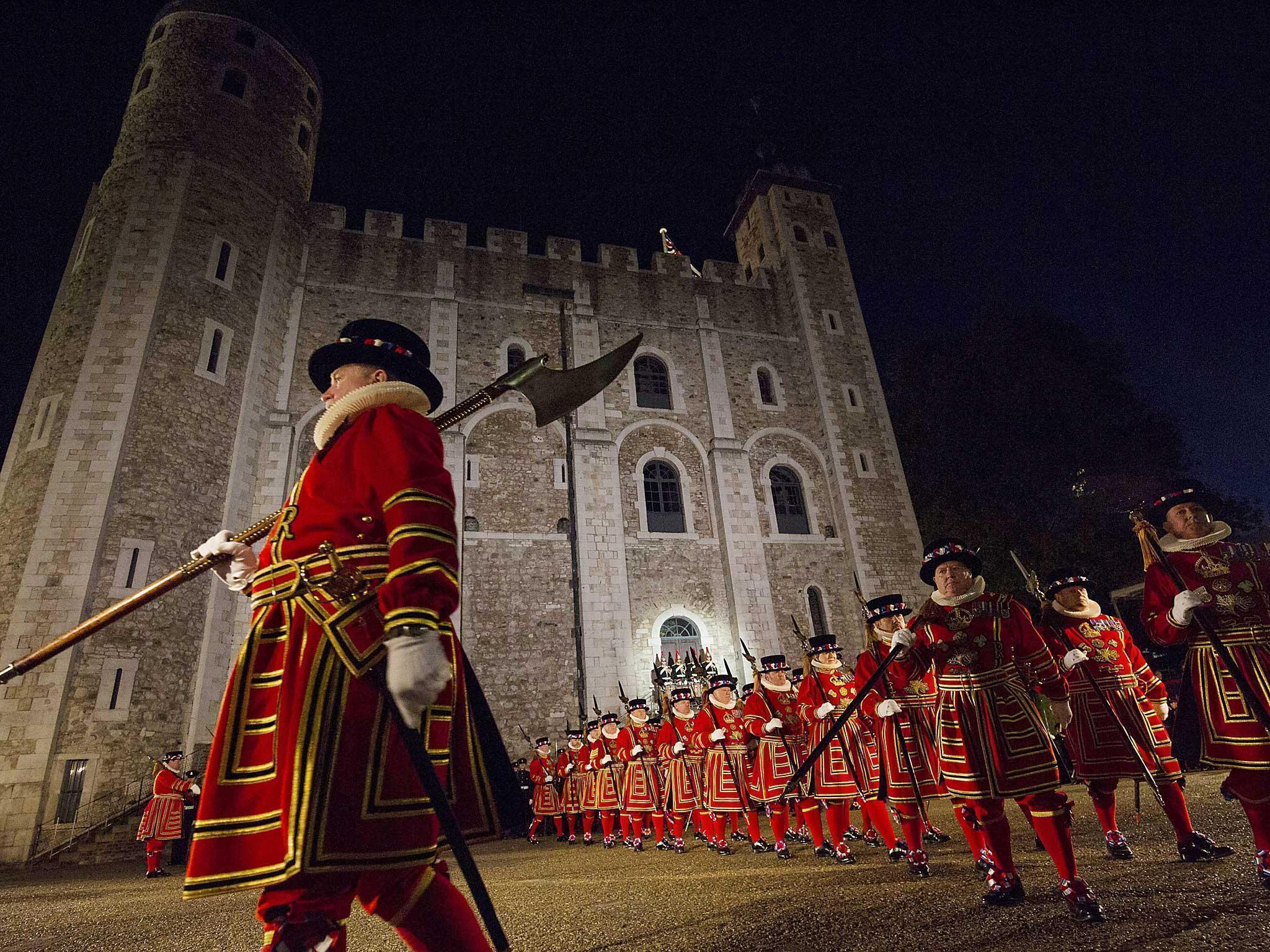Why Beefeaters at the Tower of London are going on strike
Yeoman warders unhappy at pension benefit scheme changes

Your support helps us to tell the story
From reproductive rights to climate change to Big Tech, The Independent is on the ground when the story is developing. Whether it's investigating the financials of Elon Musk's pro-Trump PAC or producing our latest documentary, 'The A Word', which shines a light on the American women fighting for reproductive rights, we know how important it is to parse out the facts from the messaging.
At such a critical moment in US history, we need reporters on the ground. Your donation allows us to keep sending journalists to speak to both sides of the story.
The Independent is trusted by Americans across the entire political spectrum. And unlike many other quality news outlets, we choose not to lock Americans out of our reporting and analysis with paywalls. We believe quality journalism should be available to everyone, paid for by those who can afford it.
Your support makes all the difference.Beefeaters at the Tower of London will stage their latest round of strike action on Tuesday in a dispute over pensions.
The yeoman warders first swapped their staffs for placards to join picket lines at the London landmark and at Hampton Court Palace and Kensington Palace on 22 December, their first participation in industrial action for 55 years.
The latest walkout by the members of the Public and Commercial Services (PCS) and GMB unions comes after two further demonstrations on 28 December and 2 January were postponed to allow for talks between the PCS and Historic Royal Palaces (HRP), negotiations that ultimately proved fruitless.
Who are the Beefeaters?
The yeoman warders, a favourite among tourists for their scarlet and gold livery, are on hand to protect the Crown Jewels and guard prisoners of the Tower.
The garrison was formed in 1485 under Henry VII and still sport the Tudor rose. Its warders have been colloquially known as “Beefeaters” since the 17th century but the precise reason for this is unclear.
One explanation is that the nickname was conveyed by Cosimo III de’ Medici, grand duke of Tuscany, who visited the Court in 1669 and observed: “A very large ration of beef is given to them daily at the court, and they might be called Beef-eaters.”
Today their role is primarily ceremonial. The guards have greeted visitors and conducted guided tours of the site since the reign of Queen Victoria. Also among their number is a “Ravenmaster”, who is charged with looking after the ominous birds that famously reside in the grounds of the Tower by the Thames.

Its ranks are comprised of retired members of the armed forces; former warrant officers, class 1 or 2, from the Royal Navy, British Army, Royal Air Force or Royal Marines. They must be recipients of the Long Service and Good Conduct Medal and have served for 22 years.
Moira Cameron became the first female yeoman warder in history when she was appointed to the role in 2007.
Why are they on strike?
The Beefeaters are demonstrating in protest at changes planned to their pension benefit scheme, which would require employees to contribute a substantially higher amount.
Staff at the Tower of London and Hampton Court Palace voted overwhelmingly to support strike action at a recent ballot, with a result of 91 per cent in favour on a turnout of 88 per cent.
Michael Ainsley, GMB regional organiser, said of the dispute: “HRP are jumping on a bandwagon which is seeing employers engaging in a race to the bottom, ending good final salary schemes and replacing them with risky cheaper defined contribution schemes.
“All the while the UK government stands idly by at a time when they’re telling the population to save for their retirement and our elderly can’t afford to pay for social care.
John Barnes, chief executive of HRP, has meanwhile argued the strike action will not change the organisation’s decision to close its defined benefit scheme.
“We have already offered substantial compensation and transition arrangements to the 11 per cent of our staff who are affected during a lengthy consultation.
“The benefits they have already accrued will be fully protected, and they will be transferred onto the same competitive defined contribution scheme as the other 89 per cent of their colleagues in April 2019.
“The closure of the scheme enables us to increase employer contributions to pensions for everyone by 2 per cent – an offer that is fundamentally fairer to our entire workforce.”
Join our commenting forum
Join thought-provoking conversations, follow other Independent readers and see their replies
0Comments